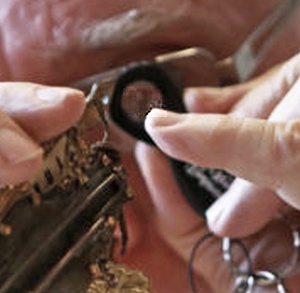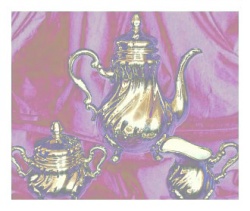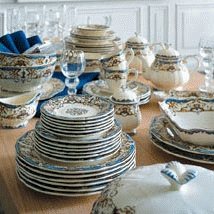Antique Appraisers

Antique appraisers have to be vetted and highly qualified. The valuation experts I know tend to have gained their knowledge by 'doing'. Essentially, they come from an auction house background. Many, but not all, of the TV Antiques Roadshow experts have the exactly same auctioneering background. That's how they get to know what they know.
This section explains about the 'auctioneers assessment' - an assessment that takes place when you take your item to the auctioneer for sale.
Antique appraisers from the big international auction houses tend to specialise in one area or another. For example, there are specialist in ceramics, glass, furniture, silver, jewellery, etc etc (just like on the Antiques Roadshow).
Local Auctioneers
Many local auctioneers who have been around the business all their lives are excellent general knowledge appraisers - in that they take about one second to see an item, compute how many thousands of times they have seen a similar item from the same maker go through their saleroom. They just 'know'.
The only trouble is, unless you go to see them in person and indicate you will be using their auction house, you will get short shrift. Equally, they are looking for that high priced item which will earn them the fees. So don't expect to get treated like royalty, even if you have some quite nice items.

Local and regional auctioneers (often referred to as 'Boutique' Auction houses) tend to be senior, seasoned professional who have seen it all.
This page you will see is in the form of a questions and answer session - with me asking the questions and experienced members of my valuations team supplying the answers.
This section is continued from the previous page sell antiques & collectibles the right way....
The Antique Appraiser's Assessment
Q. In theory, these auctioneer assessments are free, but I have personally found them inconvenient and inaccessible.
A. In principle, any auctioneer should provide you with a free valuation if you get in touch with him. The issue is that they don't always take the time to reply to your queries, especially if you don't necessarily want to sell. This is where online services like ours come in. We saw the need for an online service, which can provide an auction room estimate via email, within 48 hours with a very reasonable flat fee. You can find out more by going to our website.
Q. What can people reasonably expect from an antique appraiser?

A. Auctioneers, or else online valuation services, will provide you with a fair market value, which is the price your item should fetch at auction. This is essentially based on the previous results achieved by similar items, and does take into account fashions, taste, etc. Obviously, there can be variations from time to time which go outside the normal parameters. An auction antique appraisers job is to even this out and give a sensible auction estimate, based on the balance of his knowledge and experience.
Q. Why is there a difference between auction hammer price and retail or replacement value?
A. A retail or replacement value will generally be more than the hammer price at auction simply because you have to allow for a retailer's margin. If a dealer sources stock at auction, you can hardly expect him to sell it at the same price to the end user. The antique appraiser is giving the fair market value as the auction hammer price. The 'market' meaning the auction market, not the retail sector. The auctioneer takes only a 10%-15% cut from the seller but on top of that also charges a buyers premium which, based on the hammer price, can be up to 25% or more in some cases.
Typically a retailer needs at least to double his money in order to pay overhead. Furthermore, an auctioneer is merely a sales agent, not having to pay for, hold, and finance the stock. In addition, the retailer would usually have to be paying prime retail location rates, whereas, an auctioneer might be more tucked away.
Q. Please explain how the 'reserve' price works.

A. If selling, you will have to sign a contract with the auctioneer,
where you agree to their terms and conditions. One important part of
your contract will be the reserve price. It is the minimum amount you
are willing to sell at. This won't be divulged to the buyers though.
The reserve price is usually 10% below the low estimate worked out by
the antique appraisers. It obviously can't be higher than the antique
appraisers recommendation.
This series is continued in the next part which is "The Auctioneers Charges for Selling Your Antiques, Collectibles & Vintage China". The previous page is Sell Antiques & Collectibles the Right way....
|
The 1st article in the series tells you how to find the best auction room for selling your items. The 2nd article looks at the marketing skills needed by your chosen auctioneer. The final 4th part is about auctioneers commissions and consignment agencies. |
Return from Antique Appraisers to Figurines Sculpture homepage, or alternatively back to the hub page for this section Antique Appraisals
